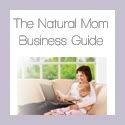Have you ever had a health issue, whether physical or mental, that really confounded you?
I have been experiencing what I call “post-ovulation depression” for a couple of years now.
Ever since my cycle returned several months ago after having the baby, I’ve been trying to find answers. I’ve read books, Googled it, talked to friends. I turned up nothing. The best I found was a message forum post or two where another woman asked the same question I was:
“Why do I feel sad immediately after I ovulate?”
I feel great during the first two weeks of my cycle – I’m energetic, motivated – almost to the point of being just shy of hyper. Stresses don’t bother me as much and I’m much more able to tackle the problems that come up. I also sleep better during this time.
But then, quite literally the day after my peak ovulation day (I know this information because I chart my cycles for Natural Family Planning), I fall into a hole.
For the next 4 days or so I am depressed. It will ebb and flow for the next two weeks, a couple of up days and a couple of down days. During this time I feel tired and I sleep lightly – every little noise wakes me up. Then, I feel better instantly once my period begins.
I do have a family history of depression so I’m careful to pay attention to symptoms like this. However, this isn’t bipolar, anxiety or clinical depression – it’s totally hormonally related and completely predictable based on my cycle.
This is very frustrating to me.
I am a very positive person who takes good care of herself. I exercise daily, I rarely drink, I eat well, take high quality multivitamins and fish oil. I’m at my ideal weight, give or take 5 pounds. I don’t have any other symptoms of depression (sleeping too much or too little, eating issues, etc). I’m generally a very happy, positive person who is able to meet her goals and has a zest for life. I just had a complete physical and everything checked out – my iron is great, my thyroid is fine. I’ve tried progesterone cream but other than helping me fall asleep more readily, it doesn’t seem to help the mood changes.
I finally sent a desperate sounding email to Dr. Heather, a naturopath I interviewed a few months ago for the show.
She was gracious enough to send a lengthy reply. She published it on her blog here: “I have post ovulation depression“.
To paraphrase, she suspected that my serotonin levels might dip too low during my luteal phase (that’s fancy talk for “after you ovulate”).
“At times during your menstrual cycle (it is usually mid cycle – after ovulation) the chemical level of serotonin may decrease.
Serotonin does many things in the body but one of it’s important job is elevating our moods. My guess is that your serotonin levels are low during this time making it difficult for you to feel your normal zest for life.
The best way to increase serotonin levels is to begin eating tryptophan rich foods as tryptophan will convert to serotonin in the body. Try doing this from ovulation to when your cycle begins. I have a list of tryptophan foods here. I also recommend the book by Carol Hart, Secrets of Serotonin, to learn more.”
I read the Serotonin Solution book, and it was certainly interesting and enlightening (did you know that serotonin turns into melatonin in the evening? They’re the same hormone!), but it confused me because it recommends a very high carb, low protein/fat diet. The author recommends only eating one meal with protein every day, at dinner. I don’t think – I know that wouldn’t work for me.
I also re-read The Mood Cure: The 4-Step Program to Take Charge of Your Emotions–Today by Julia Ross, and it recommends the opposite to boost serotonin levels – a high protein/fat, low carb diet.
Then I read Potatoes Not Prozac and it said something similar to The Mood Cure – with the twist of recommending eating a high carb snack (baked potato, no butter) at night to increase brain serotonin levels while you sleep, which hopefully will spill over into the day.
So.
I decided to begin a mood/food diary to see how food might be affecting me, and whether my carbohydrate intake during my luteal phase affects symptoms. Incidentally I DO crave rice and bagels when my serotonin is low – but I don’t know if eating those foods would be helpful. When do we give in to a craving and when don’t we?
Also, I began taking tryptophan (an amino acid that is a precursor to serotonin) in the luteal phase of my cycle. After doing a bit more digging, I found some information on Wikipedia‘s tryptophan page that pointed to a connection between low serotonin and Seasonal Affective Disorder (which I’ve experienced for years!) and a little something called “premenstrual dysphoric disorder” – which incidentally describes my symptoms to a T- just more severe than I experience.
The tryptophan seems to help me sleep better. It does make me feel a little “high” though, like I’ve had 2 glasses of wine. I don’t want to have to rely on it because I don’t like that feeling.
In the meantime, I’ve been looking for all the ways you can boost serotonin levels naturally. That’s tomorrow’s post!
p.s. Reading up on serotonin has left me with the conclusion that low serotonin may be inherited. My 10 year old son seems to be affected by a phenomenon known as “sundowning” (I didn’t know there was a name for it until recently). He often comes to me in the early evening around dusk and complains of being “sad for no reason”. Turns out this is related to the drop in serotonin levels we naturally experience as the sun goes down, to prepare our bodies for sleep. Maybe some people are very sensitive to this change? I’ve always hated dusk, and my mom has told me she experiences the same thing.
![]() photo credit: Maddie Photography~
photo credit: Maddie Photography~










I’ve had issues with insomnia related depression for years. I was actually put on an SSRI last year, not for depression but for chronic insomnia. (I was only getting three to four hours of sleep a night, if that.) From what I understood, not having enough seratonin in my system kept my melatonin levels too high. I couldn’t sleep because I never fully woke up, instead spending my life in a half sleeping state.
I went on a low glycemic index diet back in the spring, not for weight loss reasons though it has resulted in a bit, but to help increase my seratonin levels without medication. It’s been a huge help for my ability to sleep naturally and my mood by extension.
Good luck to you!
I experience this too. As well as the “winter blues”. I’m interested in reading your post tomorrow. I already journal my food for dietary reasons, but I’m gonna see how my mood is affected by the food. It’s nice to know I’m not alone in this. I thought I was for a very long time.
me too Candi!
What I found is that it’s normal for women to have more energy and be more social and talkative during the first half of their cycle (we’ve talked about this before!) and a more introspective, quiet mood during the second half of their cycle But for some this dips way too low into a depressive feeling. I don’t like feeling “not myself” for two whole weeks a month.
Amanda thanks for emailing me, I’m looking into this for sure. I’m familiar with low blood sugar issues, it’s why high carb diets have never agreed with me.
Great article Carrie! So many people need to understand this a better. And like I have said to you before .. I LOVE how proactive you are in your health!
I do want to mention one more thing. The best thing for us all to do is figure out what works best for us individually. All these books suggest what works best for them ( author) so reading a few and then pulling what makes sense to you ( and your body) is the key to optimal health.
I do not recommend a high car/low protein diet. The carbs will spike the serotonin and make you feel better but for long term success it is much better to find a balance.
I agree with the nutrition being full of contradiction! In fact, a friend and I were just talking about this. I think the absolute key is to eat as much whole real foods as possible – grass fed and organic meats, veggies, fruits, seeds, nuts, beans etc. Do your best to stick with that.
Please email me if you have any other concerns!
Today, as in previous eras, shoes do make the man. Sneakers hold out an enormous part in how males gown and for today’s image-conscious youthful guys, there are many styles to selected from. High-tops are but just one of the quantity of several types of sneakers that appeal to teen boys and youthful grownup men. With craze trends, along using the huge availability of those sneakers, many youthful males are continually near to the alert for the newest and coolest patterns and styles to fit their outfits Canada goose jacket .